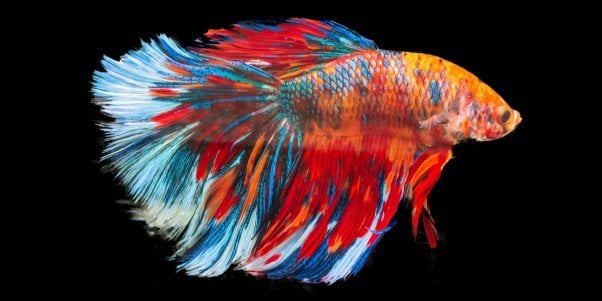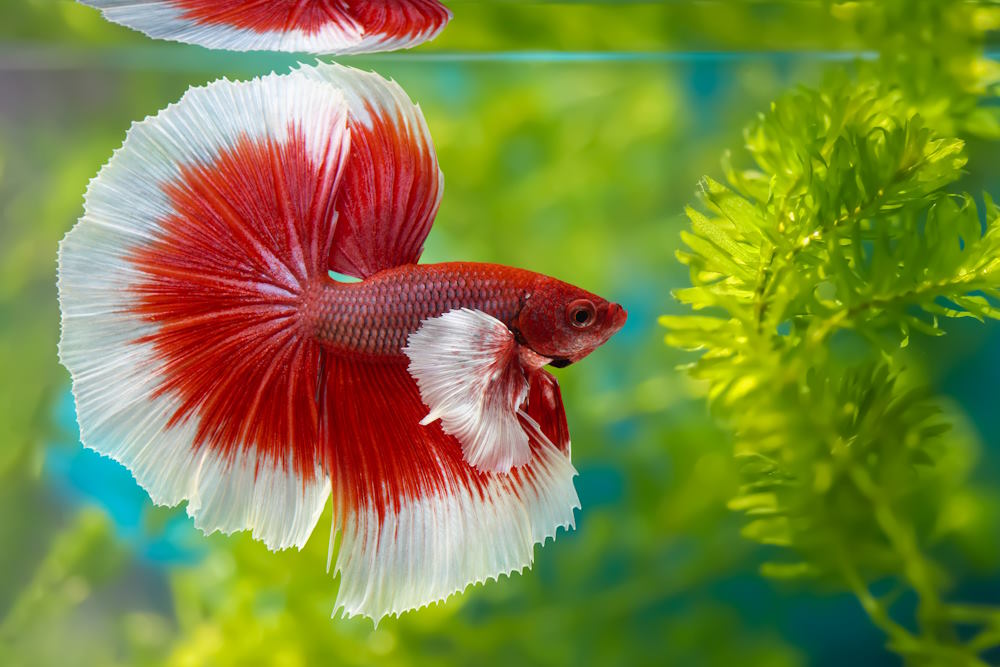How to Select the Right Betta Fish for Your Fish tank
Wiki Article
All Regarding Betta Fish: Understanding Their Unique Needs, Habits, and the Best Practices for Optimum Treatment
Recognizing the one-of-a-kind requirements and actions of Betta fish is crucial for any type of aquarist aiming to offer optimum care. These fascinating animals, indigenous to the cozy waters of Southeast Asia, exhibit unique territorial propensities and require certain ecological conditions to prosper. From picking the right tank size to identifying possible health problems, numerous factors substantially affect their well-being. As we discover these elements even more, the ramifications for both amateur and experienced fish keepers end up being significantly evident, increasing concerns regarding just how ideal to accommodate these amazing fish in our homes.Betta Fish Summary
Although usually admired for their vibrant shades and moving fins, Betta fish, medically referred to as Betta splendens, are complicated animals that need particular like thrive. Stemming from Southeast Asia, these freshwater fish are recognized for their territorial nature and one-of-a-kind actions. Betta fish show sexual dimorphism, with males presenting extra vibrant shades and longer fins than ladies.Their hostile propensities, especially among men, require careful factor to consider when real estate them. Bettas are commonly kept in single-specimen tanks to stop territorial disagreements. Nevertheless, they can coexist in harmony with specific compatible varieties in larger community containers, gave the atmosphere meets their demands.

To make certain optimum care, aquarists need to recognize their one-of-a-kind behavior traits, dietary needs, and habitat needs. betta fish. With proper attention, Betta fish can exhibit their dynamic characters and grow in a properly maintained fish tank setup
All-natural Habitat and Atmosphere
Betta fish flourish in a diverse array of all-natural habitats, primarily located in the superficial waters of Southeast Asia, including rice paddies, swamps, and slow-moving streams. These environments are characterized by cozy temperature levels, usually between 75 ° F and 82 ° F(24 ° C and 28 ° C ), and a pH degree varying from 6.5 to 7.5, which is optimal for their health and health.
In their all-natural surroundings, Betta fish are accustomed to dense vegetation, providing both shelter and breeding grounds. The existence of plants such as floating water lilies and thick lawns not only offers protection from killers yet additionally contributes to the oxygenation of the water, which is important for their breathing demands. Furthermore, these environments often have locations of still water, allowing Betta fish to display their all-natural habits such as bubble nesting.
Understanding the all-natural habitat of Betta fish is vital for aquarium fanatics. Replicating these problems-- through water temperature, pH balance, and the incorporation of online plants-- can significantly improve the total health and wellness and long life of these captivating fish, guaranteeing they thrive in a home aquarium setup.
Social Actions and Interactions
Understanding the social behavior and interactions of Betta fish is necessary for effective fish tank monitoring. Betta fish, or Siamese combating fish, are recognized for their unique behavioral traits, characterized mainly by territoriality and hostility.On the other hand, female Bettas display less hostile actions important site and can coexist in teams, called sororities, if presented effectively. It is vital to check their communications very closely, as hierarchy and prominence can lead to conflicts. Comprehending the dynamics within a Betta community is vital; developing concealing areas and guaranteeing sufficient space can minimize aggressiveness.
In enhancement, Betta fish may also display inquisitiveness and social habits towards various other types. While they can coexist with certain non-aggressive container companions, it is vital to choose suitable types to avoid stress and anxiety and hostility. In general, identifying these social communications is key to promoting an unified aquarium atmosphere for Betta fish.
Important Care Guidelines
Giving proper treatment for Betta fish is crucial to their health and wellness and health. Normal water modifications-- about 25% weekly-- assistance keep water quality.Betta fish need an ideal tank size; a minimum of 5 gallons is suggested to give adequate area for swimming and hiding. Consist of decors and plants to create a stimulating atmosphere, yet stay clear of sharp objects that might hurt their delicate fins.

Last but not least, make sure the storage tank is furnished with a filter to keep the water clean, yet use a mild filter to avoid solid currents that can helpful hints stress the fish. By adhering to these necessary care standards, owners can advertise a healthy and vibrant Betta fish.
Common Health And Wellness Issues and Solutions
In the care of Betta fish, understanding of common health and wellness issues is essential for keeping their wellness. One prevalent issue is fin rot, usually triggered by poor water top quality or bacterial infection. Signs and symptoms include torn or tarnished fins. To treat fin rot, enhance water conditions and take into consideration utilizing a broad-spectrum antibiotic.An additional typical condition is ich, a parasitical infection identified by white spots on the fish's body (betta fish). Therapy entails enhancing water temperature level and adding fish tank salt to the tank, as this can assist eliminate the parasite
Swim bladder problem is also often observed, bring about buoyancy problems. This condition over here might emerge from overfeeding or irregularity. A fasting duration of 24-48 hours, followed by a diet plan of blanched peas, can supply relief.
Lastly, bettas might suffer from velour illness, suggested by a gold dust-like appearance on their skin. Treatment generally needs medication particularly designed for exterior bloodsuckers, along with improved storage tank health.
Normal surveillance of water parameters, maintaining a clean atmosphere, and giving a well balanced diet are important safety nets. By addressing these health problems quickly, Betta fish can lead healthier, a lot more vivid lives.
Conclusion
In recap, successful betta fish care calls for an understanding of their special needs and habits. Normal tracking of health and water top quality, along with a balanced diet regimen, contributes to the longevity and vibrancy of betta fish.Report this wiki page